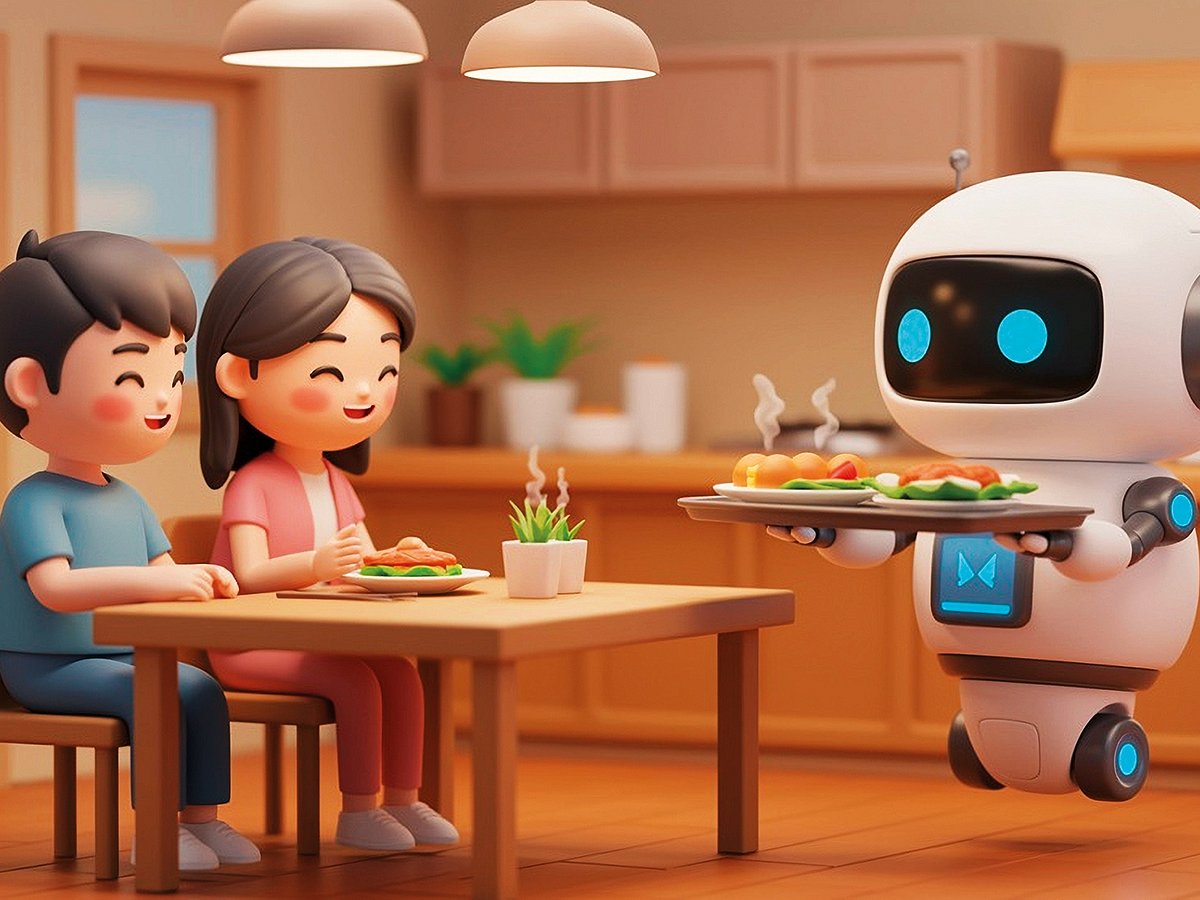Robots at the table: AI, and the future of dining in the UAE
From robotic servers to AI kitchens, UAE restaurants blend innovation with hospitality

In Dubai, diners have grown used to their meals arriving with a dash of theatre. Dubai hosts a range of locations where you can enjoy an enhanced culinary experience, from desserts revealed in clouds of liquid nitrogen, to skyline views that compete with the plate for attention. Right now, a new act is taking the stage, and perhaps unsurprisingly so: artificial intelligence and robotics, not hidden away in the kitchen, but part of the dining experience.
Across the globe, restaurants are experimenting with a progressive mix of AI-driven efficiency and the kind of immersive design that aim to deliver elevated and differentiated experiences. The aim is not to replace the chef’s craft or the maître d’s warmth, but to reshape and push the envelope when it comes to what the experience of dining out is, and the efficiencies of the business model behind the scenes.
From Tokyo sushi belts to California cobots
In Japan, conveyor-belt sushi has long been a staple. But chains like Kura Sushi have gone further. There a diner can experience robots deliver drinks orders directly to the table, while behind the scenes AI tracks workflow patterns within the venue to streamline kitchen workflow.
In the United States, salad chain Sweetgreen has opened its first “Infinite Kitchen” location in Illinois, where robotic assembly lines build custom bowls with uncanny precision. This brings both speed and more consistency. Meanwhile, Chipotle is piloting an avocado-prepping cobot, nicknamed Autocado, and a “makeline” automation system that assembles burrito bowls, freeing staff to focus more on guest interaction.
And in Singapore and Los Angeles, sleek autonomous servers like BellaBot glide between tables, weaving around guests with trays of steaming dishes, while their touchscreens offer a cheerful greeting or even a playful animation.
Why the UAE is ripe for this shift
Dubai’s dining sector is a magnet for ambitious concepts. Here, innovation is currency and commonplace across multiple sectors.
Layer AI into an ambitious culture, and the possibilities multiply. A high-end Emirati restaurant could use AI-driven kitchen systems to ensure heritage dishes are prepared with exacting consistency, while front-of-house robots manage drink service during peak hours, maximising smooth flowing operations without compromising the experience diners expect.
The UAE’s broader technology ecosystem makes this transition natural. With the country’s AI strategy, smart city infrastructure, and appetite for headline-grabbing innovation, AI in hospitality is supported by the infrastructure and political desire to support accelerated levels of development.
The business case for AI at the table
For operators, automation can be more than a gimmick. Rising labour costs, seasonal staffing gaps, and the push for sustainability make efficiency gains attractive. AI-powered kitchen systems have provided evidence that they can increase throughput and profitability. In Dubai, where service expectations are high and table turnover is crucial in busy venues, the ability to serve faster without losing quality can be transformative.
Inventory management is another opportunity. AI systems can forecast demand, reduce over-ordering, and cut food waste, which directly supports the UAE’s Food Waste Pledge and broader sustainability goals.
Keeping the human touch
The UAE’s hospitality culture is steeped in generosity and personal connection. Any AI deployment here must work with, not against, this heritage. The sweet spot is a hybrid model which lets machines handle repetitive tasks, liberating human staff to deliver the warmth, cultural nuance, and service that technology cannot yet replicate.
Imagine a Dubai steakhouse where a robot delivers your appetiser, but the steward, remembering your last visit, presents a main course chosen just for you. Or a beachfront café where an AI host manages waitlists and seating, freeing staff to engage more deeply with guests.
Avoiding the novelty factor
Novelty attracts the first wave of diners, but it is execution that keeps them coming back. The most successful AI integrations so far have been those where technology fades into the background of a seamless, memorable experience. In fact, the risk associated to becoming too heavy on the AI aspect of the experience or offering is that it becomes only a novelty and, in the case of restaurants, this means a one-off visit instead of a loyal customer base who want to return. That’s where Dubai’s hospitality leaders can excel, potentially by designing tech and AI into a narrative that reflects the city’s dual love of a tradition based on warm hospitality and modern cutting edge technology.
A stage set for hybrid hospitality
In a city known for doing things bigger and bolder, the arrival of AI and robotics into the dining scene is less a question of “if” than “how soon.” The UAE’s combination of luxury hospitality, tech ambition, and appetite for innovation puts it in prime position to lead this global shift.
Chris Redmond is a global tech executive who is now an entrepreneur in the media tech space
Network Links
GN StoreDownload our app
© Al Nisr Publishing LLC 2026. All rights reserved.